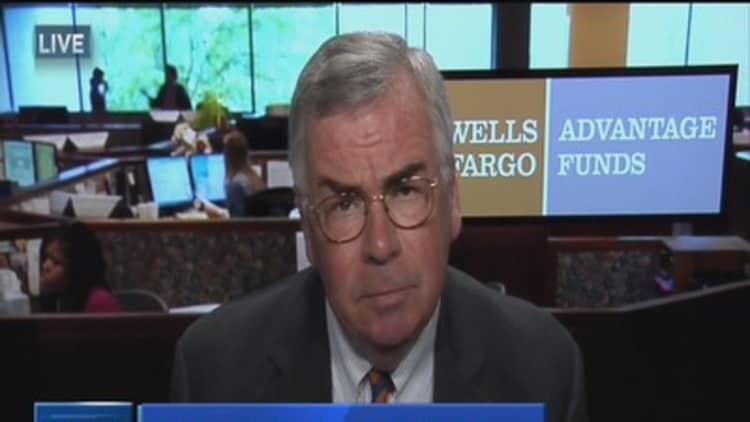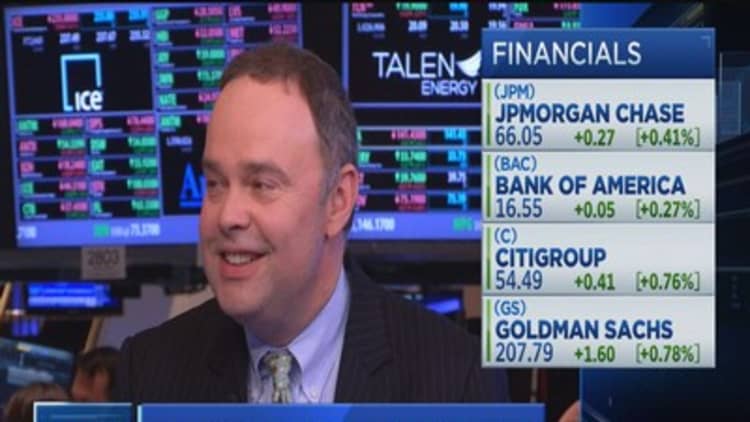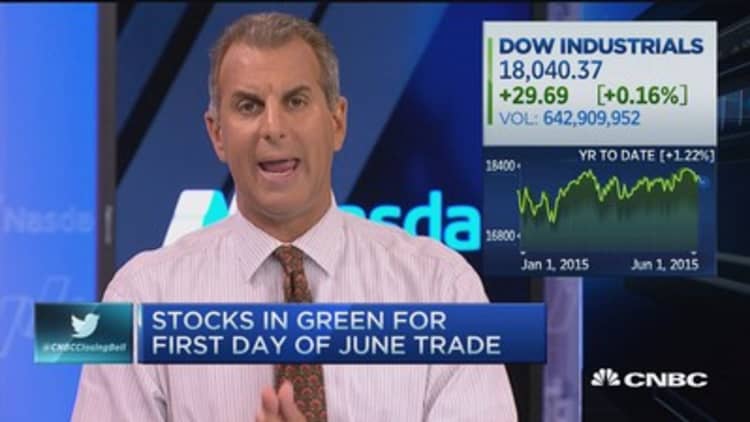


With the market trading in a muted range on mixed economic data, traders are increasingly looking at plays around bubbling merger and acquisition activity that might offer an upside.
M&A activity is already up 52 percent on the year compared with the same period in 2014, according to Thomson Reuters. May marked the second-best deal month in history for U.S. companies, according to S&P Capital IQ, and the cycle might be just kicking off.
Read MoreM&A surges, but it may not last
How some deals are paid for might be an indicator of the stage of the cycle, according to Sam Stovall, managing director at S&P Capital IQ, who calls the recent share-heavy Intel and Altera deal an outlier. "Usually in the beginning of an M&A cycle you have companies using cash, because they have a lot of cash on the sidelines and their stock really hasn't appreciated all that much," he said on CNBC's "Closing Bell."
Read More Proof the stock market has gone nuts
There is still a lot of cash and buying power hanging around, according to John Manley, chief equity strategist at Wells Fargo. And while shares of companies on either side of a deal could see a boost, Manley thinks it might be safer to stick with the buyer. "I'd actually buy some of the acquirers," he told CNBC. I think it's a better game trying to play an improvement in the industry cause of consolidation rather than trying to pick out which one goes next."
Read More Why M&A is on a tear in 2015: THL Partners' Sperling
And it's not just the chips and health-care industries that are heating up. Chief investment officer at Mendon Capital, Anton Schutz says a low-interest rate environment could fuel the M&A activity bubbling up in the financial sector, albeit among smaller banks.
"The companies that are under $10 billion in assets are absolutely buyers trying to stay under that $10 billion," he told CNBC. "Own a basket of stocks in the Southeast that are under a billion in assets and stuff will happen," he said, pointing to less regulatory pressure and good economies of scale as the main reasons to target banks that size.


